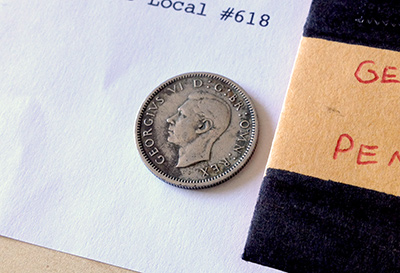It’s the last day to get “Go Away, Sea Lion” shirts! The order period closes at 8pm Pacific time on Thursday.
If you’ve grabbed one already, thanks so much!! If you haven’t, no worries, this is the last I’ll mention it.
It’s the last day to get “Go Away, Sea Lion” shirts! The order period closes at 8pm Pacific time on Thursday.
If you’ve grabbed one already, thanks so much!! If you haven’t, no worries, this is the last I’ll mention it.
Reader @Stringerplz shared these great pictures of her carved dodo pumpkin!


@malki not Halloween Keith. Also not a sea lion. In other words an utter failure. I beg forgiveness #notallpumpkins pic.twitter.com/L3QvTolUNx
— Paul Bunyip (@Stringerplz) October 27, 2014
Modeled after, of course, the dodos with the time!
PREVIOUSLY:
• Piranhamoose-O’Lantern
• A New Piranhamoose-O’Lantern
In her tweet above, Stringerplz mentions “Halloween Keith.” Some of you older readers will no doubt remember Halloween Keith from your childhood.
I'll never understand how it came to pass that everyone's happy to play along with "Santa Claus" but Halloween Keith never really caught on.
— MALKenstein ! (@malki) October 26, 2014
Halloween Keith was the best! Dressed as a mummy, eyes two dripping eggs, bag of candy on his face like an oatbag, footprints always wet.
— MALKenstein ! (@malki) October 26, 2014
I remember going to the cornbake and offering Halloween Keith a ceremonial cob. Of course now I realize it was just a man in a costume.
— MALKenstein ! (@malki) October 26, 2014
The only thing we still have of the Halloween Keith mythos in culture today is the game Truth or Dare
— MALKenstein ! (@malki) October 26, 2014
I have written some more about Halloween Keith.
Some say Halloween Keith was a corn farmer who died in a drought year, through laziness or ill-management of his crop; others say he was born from the cornfields themselves, a new form of smut who took legs in an attempt to become a man. Inside his wrappings are either bony limbs hung with rotted flesh, or bulbous, fungal lumps of corn. Perhaps both, working in concert…
Once a year, on the eve of All Saints’ Day, children from the local parish used to go door-to-door collecting food donations to help the less fortunate. Because charity is most virtuous when done anonymously, the children would wear masks, or dress up in costume — sometimes as adults, but other times as monsters and evil things, as a reminder that even the demons may repent and do good works.
This presented the perfect opportunity for Halloween Keith to also disguise himself and collect food from unsuspecting families, enough to feed him for another year…
— Malkidian Geometry: The Forgotten Mythos of Halloween Keith
OBLIGATORY REMINDER: Only two days and a bit remain on the Go Away, Sea Lions shirt!
My comic from last month about The Terrible Sea Lion has really struck a chord!
It’s been mentioned by the Independent (above), Slate, VentureBeat, Feministe, and cited in a ton of blog posts.
That’s really neat to see! I’m happy that it’s resonated with so many people.
This video I'm watching about #ThatHashtag just referenced sea lioning as a harassment tactic. Looks like we saw the birth of a new word!
— Killing Screamer (@mitDebo) October 21, 2014
"Sea lioning" is already part of the lexicon. Useful term, too. The actual practice has been on the internet since forever.
— Mononike Toole (@MichaelToole) October 23, 2014
I just heard the term "sea lioning" used as a verb and I'm choking it's so funny. Holy shit we need to make sure that becomes a thing.
— Jodorowski's Ben (@BenKuchera) October 23, 2014
Useful vocabulary terms for the less obvious harassment tactics used against women online. Via http://t.co/KggLqIlgtv pic.twitter.com/JNPgQucWkO
— Feminist Frequency (@femfreq) October 23, 2014
I just said 'he just sealioned you' to someone IRL
— Patricia Hernandez (@xpatriciah) October 20, 2014
@DiscordianKitty sea lioning is new to me. I wonder if it came from this, or if it inspired it:
http://t.co/6UJmzuriA6
— John Carney (@johncarneyau) October 22, 2014
There are times I do NOT google words or phrases I see here, 'cause I don't wanna know!
Sea Lioning is one of those things.
— Bearbarian (@Hap2130) October 23, 2014
So I thought this would be fun: for just a week (through October 31 only) I’m making sea lion shirts!
Different colors (and even hoodies) are available too! And a tie-dye shirt because WHY NOT.
Now of course I should note: reasonable people can disagree.
Sealioning? People expect to say something in public and not be challenged on it. Mad.
— Lacey (@HenSiSi) October 23, 2014
Sent Sea Lion to a guy who kept commenting despite me saying I didn't want to argue today. He said it didn't apply. http://t.co/KqNEv8vW7Q
— Ferrett Steinmetz (@ferretthimself) October 3, 2014
Some people are calling the lady in the sea lion comic a SEA LION RACIST and saying she deserves to be challenged and confronted!
— MALKenstein ! (@malki) October 3, 2014
Sea Lion vs Cat #Falklands pic.twitter.com/qnSJGa369X
— Falkland Islands (@falklands_utd) October 14, 2014
*literally starts a fist fight with a sea lion because he stuck his tongue out at my wife at seaworld*
— Jazmasta (@jazmasta) October 3, 2014
Apologies if you've already seen a picture of an elephant saying hello to a sea lion today. pic.twitter.com/78WROc2SpC
— Beautiful Pictures (@BEAUTIFULPlCS) September 17, 2014
But c’mon I don’t even know how that last one RELATES

Every now and then you see someone talking about “the lost art of letter writing.” There was a TED talk, and a book last year, and there always seem to be articles and thinkpieces aplenty:
Thomas G. Knoles, the Marcus A. McCorison Librarian at the American Antiquarian Society, has an intimate knowledge of the more than 100,000 handwritten letters, as well as 1,500 manuscript collections, spanning from 1630 to present day, that are housed in the society’s archives.
“Life was so different in the 19th century. People didn’t have television, computers or radios, any of the distractions that they have now,” Knoles said. “Between the fact that it was the only way of communicating with people who were local and the fact there was actually disposable time to write the letters, letter writing was something that was a common practice.”
…While he feels the transition to the computer is a natural one, Knoles said there will be a whole texture of what everyday life was like that is going to be much harder to recapture because people don’t keep letters like they do emails and texts.
“We can grieve for anything that changes, but my own feeling is that you have to accept the fact that things are going to change,” Knoles said. “People grieved when the typewriter came. People grieved in the mid-19th century when the envelope was introduced and before that they used sealing wax.”
– “Mass. Scholars Mourn Lost Art Of Letter Writing”, CBS Boston, March 22, 2014
To be clear, I am a fan of letter writing!
• As the quote above says, letter writing, its other charms aside, preserves history. On this site I’ve discussed correspondence by the Wright Brothers and shown off letters my mother received from Isaac Asimov. My mother, a prolific correspondent, has saved bushels of letters we’ve come across decades later, but in the future, we are likely to find few from the era since she began sending emails.
• A couple years ago, I sent letters — 521 of them — to every head of state in the world, every governor in the U.S., 200 of the world’s top CEOs, and the pope. I got 52 letters back!
• People send me letters! I love it when they do. Here’s one I got recently (click for bigger):
…Of late, however, we faced a quandary regarding your fine publication. Sharp-eyed old Grisby noticed there is a price cited on your mast-head. Imagine our shame at discovering we have been leeches, sucking the bounty of your blood for close to eleven years, without so much as lying about paying…
Enclosed please find the requisite payment of six pence… Notices of subscription renewals should not be sent and will go unanswered. We consider the matter closed.

• Hundreds of people sent us letters about Machine of Death — we asked them to, in exchange for us sending them a death prediction card in the mail. We said “send us anything,” and the results were amazing.
So, I’m firmly on the side of writing letters. But it’s true that it’s somewhat of an affectation these days. I correspond with people all the time, but the last letter I wrote was an angry one to the IRS.
One of my favorite historical books, though, is all about writing letters…
I’m on an improv comedy team! One of the house teams at Westside Comedy Theater in Santa Monica, CA. We perform (free) shows on alternate Mondays — we perform tonight, actually!
I like improvising because it’s a very different discipline from writing, but it can, as a mental exercise, help inform the craft of writing. A while ago I wrote a post about how thinking like an improviser can be helpful in writing short stories:
Improvisers are taught that whatever the scene starts being about, is what it’s about. If one person says “I’m hungry,” then the second person could say “Well, of course! You haven’t eaten for days!” And the scene would be about that person being hungry.
Why are they hungry? What has prevented them from eating? A diet? A stomach trauma? Torture? Are they too poor to buy food? Are they on a hunger strike? Are they always hungry, no matter how much they eat? Do they have a tapeworm? How do the other characters feel about the hunger? How does it make them react? […]
If you don’t know what to write, start with anything. If you dig into it, if you ask “why,” if you ask “what does this mean,” if you ask “who does this affect” — I promise you that any small thing at all will be enough.
As a rule, improvisers try not to pre-plan anything, and build a scene collaboratively with their fellow players, and create characters rather than trying to tell jokes.
But a lot of time, in doing so, we forget to talk about alligators, one of the most well-worn improv tools. So I’ve compiled this handy (and exhaustively-researched) reference to the 55 classic scene initiations featuring alligators.
Feel free to use any or all of them, in any situation you encounter, as needed.
As a bonus exercise, you can also apply these lines to any randomly selected New Yorker cartoon.